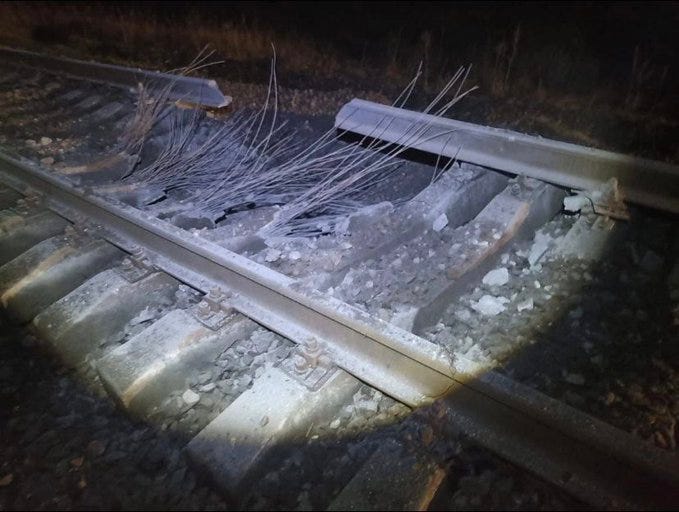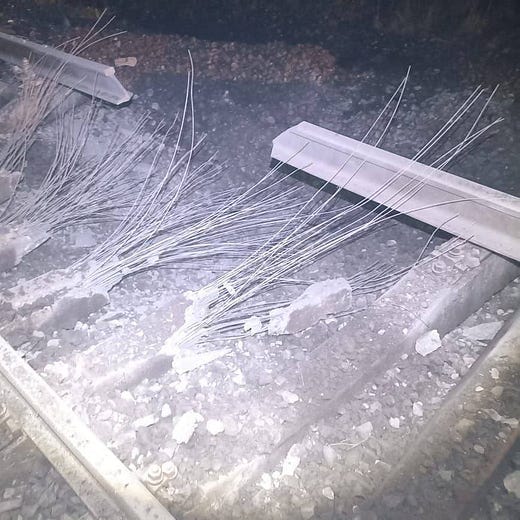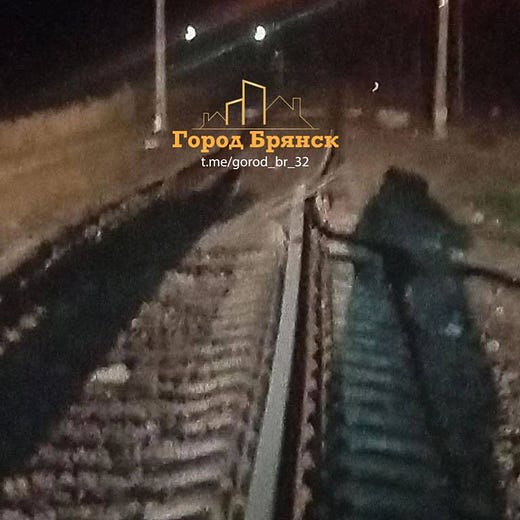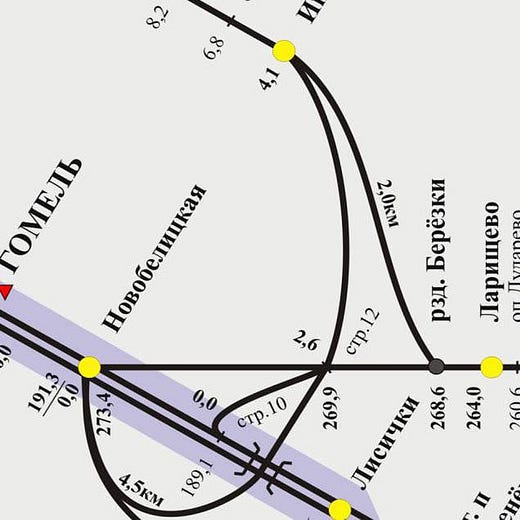On October 25th, the Anarcho-Communist Combat Organization (БОАК/BOAK) claimed the detonation of an improvised explosive device placed along a Russian railway in the “Nobozybkov-Zlynka stretch” outside of Bryansk, near the border with Ukraine. According to the attack claim, the railway led to connecting rails in both Ukraine and Belarus and temporarily halted military equipment from traveling to the latter Russian-allied country. Russian media also reported on the blast and appeared to confirm that military cargo traveling from Russia to Belarus was disrupted by an act of sabotage. The explosion apparently occurred one night before the claim was released, on the 24th—exactly eight months from the beginning of the Russian invasion of Ukraine. Photos of the blast as well as rail maps were posted to Twitter by the monitoring group, Belarusian Hajun project:
Militant Wire now offers regularly published research and analysis accessible to paid subscribers:
• The Islamic Translation Center: Al-Qaeda’s Media Force Multiplier
• MW Monitoring: Islamic State Propaganda Developments in South and Central Asia
• New Islamic State Khurasan Recruitment Channel Targets Tajiks
• Weaponry Used by Pro-Ukraine Belarusian Combatants Since Russia's Invasion
• ISKP Depends on Archive Sites, Social Media, and Messaging Applications to Spread Propaganda
• MW Monitoring: Islamic State Propaganda Developments in South and Central Asia - Threats Against Uzbekistan and Tajikistan
• A Brief History of Halummu, the Islamic State-Aligned Translation and Propaganda Outlet
• Islamic State’s Khurasan Branch Continues Trend of Celebrating Tajik Martyrs: A Profile of Umar at-Tajiki
• A Profile of Pro-Islamic State Group Halummu's Translation and Media Operations
• Manufacturing the Revolution: Weapons and Explosives Craft-Produced by Myanmar's Anti-Junta Fighters
• Communist Guerrillas Ambush Philippine Soldiers Reportedly Conducting Disaster Relief Operations
BOAK emerged as far back as 2016, and were more broadly noticed by analysts outside of Europe in the spring of 2022, as anti-government partisan activity in Russia increased to levels not seen in recent history, but they have had a presence on the dark web predating the February 24th invasion. This early presence included posts that claimed acts of sabotage targeting Russian infrastructure, such as cell phone towers, etc. The direct actions of their operational cells—which seem to be concentrated in western Russia, either outside of Moscow or close to the borders with neighboring Ukraine and Belarus—have primarily focused on what BOAK has termed the “Rail Wars,” or a guerilla campaign of sabotage meant to prevent logistics from both moving about Russia as well as moving from Russia to either staging areas in Belarus or into occupied territories of Ukraine.
In July of 2022, Militant Wire reported on a BOAK sabotage action targeting a Russian railway outside of Moscow implementing a shunting technique that was said by the group not to disrupt the maintenance signal along the line, which would have alerted rail workers to the altered segment of track. This action was also said by BОАК to have halted military cargo traveling to the conflict in Ukraine.
Photos from the recent explosive attack show a section of rail that has been completely blown away, with ties destroyed and rebar jutting out from a crater below the missing segment of track. In confirming the attack, Russian media stated that there were no reported casualties.
BOAK’s claim stated:
It was noisy in Bryansk last night. The partisans blew up the railway tracks at the Novozybkov-Zlynka stretch, at the junction of the Russian Federation with the Belarusian and Ukrainian borders. Several sleepers and a piece of the rail bed were completely destroyed - the transportation of military cargo to Belarus was stopped. Well done!
The claim goes on to invoke the memory of Russian anarchist, Mikhail Zhlobitsky, who has been mentioned in past and successive BOAK communications, as well as those from militant anarchist cells throughout the world, particularly in Greece and Italy. Zhlobitsky died in a suicide bombing at a Russian intelligence outpost belonging to the FSB in Arkhangelsk Oblast on October 31st, 2018, perhaps lending further symbolic significance to BOAK’s recent railway attack, in addition to the action aligning with the eighth month of the war in Ukraine.
Small left and post-left partisan cells in Russia have become increasingly bold in their attacks on infrastructure, and notably, on military enlistment offices. Attacks on recruitment and enlistment centers have primarily consisted of late-night arsons using Molotov cocktails.
There is some question as to whether these groups are receiving any support from Western and/or Ukrainian intelligence, or if they are operating completely independently and out of genuine discontentment with the Putin administration and with the war. In the latter case, it is reasonable to believe that such anti-government sentiments have risen since partial mobilization was announced by President Putin in September. Russia has alleged that other partisan groups have also attacked Russian infrastructure in resistance to the war, including supposed far-right nationalists shot and killed by Russian security forces in an apparent attempt to blow up a gas pipeline in the west of the country.
The most recent attack claimed by BOAK is an escalation in tactics. BOAK’s profile is growing rather rapidly, and interest in them is high among Western observers given their daring tactics. It will be well worth observing how the group’s capabilities develop and how Russia’s internal security services adapt their approach in trying to prevent such activities.
CORRECTION: When originally published, this article reported BOAK emerged on Telegram in spring of 2022. Their second channel appeared in April of 2022, but their first goes back at least to 2019, and the group themselves have been around since at least 2016.








